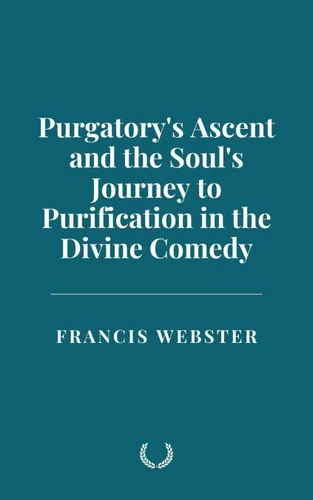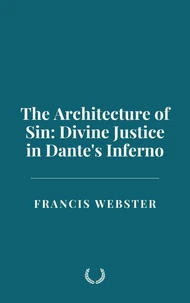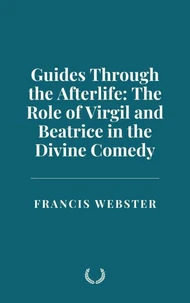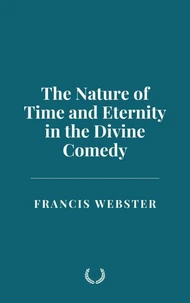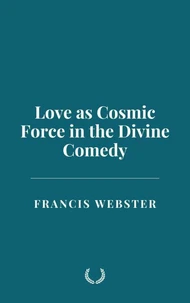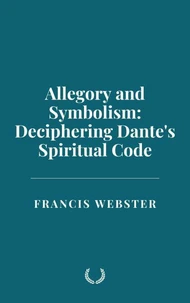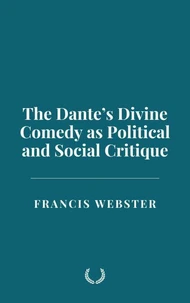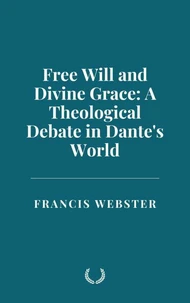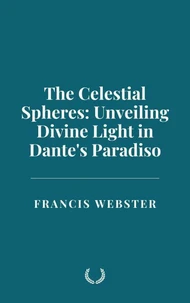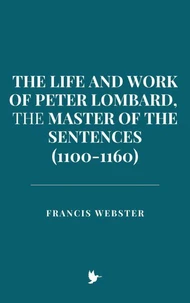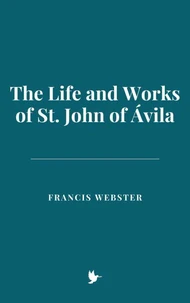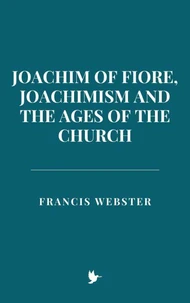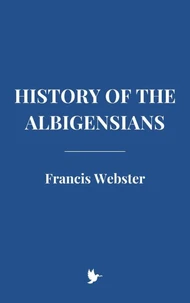Purgatory's Ascent and the Soul's Journey to Purification in the Divine Comedy
Par :Formats :
Disponible dans votre compte client Decitre ou Furet du Nord dès validation de votre commande. Le format ePub est :
- Compatible avec une lecture sur My Vivlio (smartphone, tablette, ordinateur)
- Compatible avec une lecture sur liseuses Vivlio
- Pour les liseuses autres que Vivlio, vous devez utiliser le logiciel Adobe Digital Edition. Non compatible avec la lecture sur les liseuses Kindle, Remarkable et Sony
 , qui est-ce ?
, qui est-ce ?Notre partenaire de plateforme de lecture numérique où vous retrouverez l'ensemble de vos ebooks gratuitement
Pour en savoir plus sur nos ebooks, consultez notre aide en ligne ici
- FormatePub
- ISBN8230263456
- EAN9798230263456
- Date de parution08/03/2025
- Protection num.pas de protection
- Infos supplémentairesepub
- ÉditeurIndependently Published
Résumé
Dante Alighieri's Divine Comedy is one of the most profound works in Western literature, a literary and theological masterpiece that not only chronicles the journey of the soul but also offers a comprehensive view of Dante's understanding of sin, redemption, and divine justice. Written in the early 14th century, it is both a personal allegory of Dante's own journey toward spiritual enlightenment and a political commentary on the corrupt state of Italy, particularly Florence, where Dante spent much of his life.
At its core, the Divine Comedy presents an allegorical tale of the soul's journey through Hell (Inferno), Purgatory (Purgatorio), and Heaven (Paradiso), representing the stages of spiritual purification and the soul's ascent toward the ultimate vision of God. To fully grasp the significance of Purgatorio, one must understand the historical and theological backdrop in which Dante wrote, along with the classical and Christian influences that shaped his worldview.
Dante lived during a period of intense political strife, social instability, and religious tension. The church held immense political power, and the papacy was embroiled in corruption and power struggles. Florence, Dante's birthplace, was a city marked by factional warfare, with political and religious leaders vying for control. This chaos, combined with Dante's personal exile from Florence due to his political views, is reflected in the Divine Comedy, which is both a meditation on the human condition and a critique of the world Dante knew.
The Divine Comedy is built upon the medieval understanding of the cosmos, heavily influenced by Aristotle, Boethius, and Thomas Aquinas. Dante incorporates Aristotelian concepts of ethics and virtue, blending them with the Christian doctrine of salvation. Purgatory, the subject of this book, is a key component in Dante's vision of the afterlife. While Inferno focuses on the eternal damnation of the damned, Purgatorio is concerned with the purification of the soul, the process by which sinners can redeem themselves and prepare for Heaven.
It represents, in many ways, the heart of Dante's spiritual and moral philosophy: that redemption is possible through repentance and divine grace, but it is a difficult and painful journey.
At its core, the Divine Comedy presents an allegorical tale of the soul's journey through Hell (Inferno), Purgatory (Purgatorio), and Heaven (Paradiso), representing the stages of spiritual purification and the soul's ascent toward the ultimate vision of God. To fully grasp the significance of Purgatorio, one must understand the historical and theological backdrop in which Dante wrote, along with the classical and Christian influences that shaped his worldview.
Dante lived during a period of intense political strife, social instability, and religious tension. The church held immense political power, and the papacy was embroiled in corruption and power struggles. Florence, Dante's birthplace, was a city marked by factional warfare, with political and religious leaders vying for control. This chaos, combined with Dante's personal exile from Florence due to his political views, is reflected in the Divine Comedy, which is both a meditation on the human condition and a critique of the world Dante knew.
The Divine Comedy is built upon the medieval understanding of the cosmos, heavily influenced by Aristotle, Boethius, and Thomas Aquinas. Dante incorporates Aristotelian concepts of ethics and virtue, blending them with the Christian doctrine of salvation. Purgatory, the subject of this book, is a key component in Dante's vision of the afterlife. While Inferno focuses on the eternal damnation of the damned, Purgatorio is concerned with the purification of the soul, the process by which sinners can redeem themselves and prepare for Heaven.
It represents, in many ways, the heart of Dante's spiritual and moral philosophy: that redemption is possible through repentance and divine grace, but it is a difficult and painful journey.
Dante Alighieri's Divine Comedy is one of the most profound works in Western literature, a literary and theological masterpiece that not only chronicles the journey of the soul but also offers a comprehensive view of Dante's understanding of sin, redemption, and divine justice. Written in the early 14th century, it is both a personal allegory of Dante's own journey toward spiritual enlightenment and a political commentary on the corrupt state of Italy, particularly Florence, where Dante spent much of his life.
At its core, the Divine Comedy presents an allegorical tale of the soul's journey through Hell (Inferno), Purgatory (Purgatorio), and Heaven (Paradiso), representing the stages of spiritual purification and the soul's ascent toward the ultimate vision of God. To fully grasp the significance of Purgatorio, one must understand the historical and theological backdrop in which Dante wrote, along with the classical and Christian influences that shaped his worldview.
Dante lived during a period of intense political strife, social instability, and religious tension. The church held immense political power, and the papacy was embroiled in corruption and power struggles. Florence, Dante's birthplace, was a city marked by factional warfare, with political and religious leaders vying for control. This chaos, combined with Dante's personal exile from Florence due to his political views, is reflected in the Divine Comedy, which is both a meditation on the human condition and a critique of the world Dante knew.
The Divine Comedy is built upon the medieval understanding of the cosmos, heavily influenced by Aristotle, Boethius, and Thomas Aquinas. Dante incorporates Aristotelian concepts of ethics and virtue, blending them with the Christian doctrine of salvation. Purgatory, the subject of this book, is a key component in Dante's vision of the afterlife. While Inferno focuses on the eternal damnation of the damned, Purgatorio is concerned with the purification of the soul, the process by which sinners can redeem themselves and prepare for Heaven.
It represents, in many ways, the heart of Dante's spiritual and moral philosophy: that redemption is possible through repentance and divine grace, but it is a difficult and painful journey.
At its core, the Divine Comedy presents an allegorical tale of the soul's journey through Hell (Inferno), Purgatory (Purgatorio), and Heaven (Paradiso), representing the stages of spiritual purification and the soul's ascent toward the ultimate vision of God. To fully grasp the significance of Purgatorio, one must understand the historical and theological backdrop in which Dante wrote, along with the classical and Christian influences that shaped his worldview.
Dante lived during a period of intense political strife, social instability, and religious tension. The church held immense political power, and the papacy was embroiled in corruption and power struggles. Florence, Dante's birthplace, was a city marked by factional warfare, with political and religious leaders vying for control. This chaos, combined with Dante's personal exile from Florence due to his political views, is reflected in the Divine Comedy, which is both a meditation on the human condition and a critique of the world Dante knew.
The Divine Comedy is built upon the medieval understanding of the cosmos, heavily influenced by Aristotle, Boethius, and Thomas Aquinas. Dante incorporates Aristotelian concepts of ethics and virtue, blending them with the Christian doctrine of salvation. Purgatory, the subject of this book, is a key component in Dante's vision of the afterlife. While Inferno focuses on the eternal damnation of the damned, Purgatorio is concerned with the purification of the soul, the process by which sinners can redeem themselves and prepare for Heaven.
It represents, in many ways, the heart of Dante's spiritual and moral philosophy: that redemption is possible through repentance and divine grace, but it is a difficult and painful journey.

